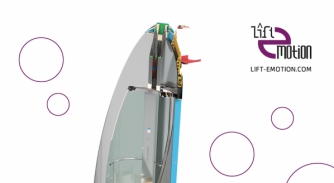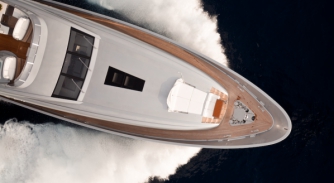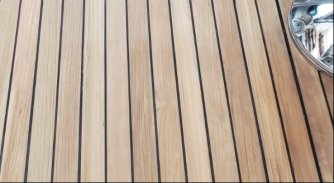Mutual benefit
How a focus on superyacht crew welfare yields benefits for all involved and risks for employers if ignored…
Crew welfare has been a much-discussed topic, particularly in recent years as the industry and indeed the world has woken up to issues of mental health. However, the COVID-19 pandemic gave discussions about mental health an additional shot in the arm as people the world over, including superyacht crew, wrestled with all forms of mental health issues on a hitherto unprecedented scale. Herein we explore the importance of wellbeing from the perspective of both the crew and the owner, using the ongoing issues created by the COVID-19 pandemic to frame the subject.
“I am regularly instructed on behalf of yacht owners and their liability underwriters to defend crew mental health claims made against them, a trend which had been increasing for several years now,” starts Rachel Butlin, partner at Ince. “Within the yacht industry, I have been involved in many cases in which there have been not just physical injuries to yacht crew but increasingly psychiatric ones, including anxiety and post-traumatic stress disorders, as well as depression and the emotional consequences of bullying/assault.”
In addition to the general challenges faced by crew, yacht owners, captains and managers, crew have had to, and continue to, deal with the impact of the global pandemic. COVID-19 has had a profound effect on the wellbeing of yacht crew and seafarers generally who have been particularly impacted due to various factors.
“It is harder, for example, to socially distance yourself on a yacht. Despite the best intentions and efforts of many owners, feelings of isolation can become more acute for those who are struggling to cope and for others who may be subject to harassment or bullying, all the while not being able to return home with no genuine end in sight,” continues Butlin.
The challenges faced by owners, captains and superyacht crew (especially during the most acute time of the COVID pandemic) are often overlooked by those that do not fully understand the nuances of the superyacht market. From the outside, it may look like superyacht crew lead a privileged lifestyle and, as such, empathy and/or sympathy on the part of others is often in short supply.
“Sometimes it is a training issue, but often there is a significant gap between the expectations of junior crew embarking on a career on a superyacht, and the realities of life on board.,” explains Butlin. “Responsible owners and yacht managers have observed that junior crew do not expect the work to be as hard, nor the hours as long and it is often more taxing, emotionally draining and mentally challenging than they anticipated.”
In recent weeks, much of the industry’s reportage has focussed on the market’s booming core sectors. New build, brokerage, refit and charter are all going through a period of excellent sector performance. However, in amongst the excitement, it is very easy to overlook the fact that the pandemic is by no means over and normality by no means returned, although at least repatriation problems have eased considerably. Many of the issues experienced by crew throughout the pandemic are still very much a reality and as owners, guests, captains and managers grow in confidence, cruising on a global scale is going to throw up a whole host of new issues as the pandemic environment continually evolves. Countries that were not COVID hotspots one day, for example, may be designated as hotspots the day after. Without a single objective source of information or uniform global COVID policy, there will continue to be confusion and uncertainty, and this will invariably add to the mental strain of crew.
“A year and a half after the pandemic initially hit, we still see numerous restrictions imposed at short notice by governments creating obstacles that result in operational difficulties for owners and despite their best efforts, often real suffering for superyacht crew. We have already seen issues arise with some crew on merchant vessels being pressured by port requirements to take additional vaccines, being asked to sign additional documents relating to their vaccine status and other examples from various ports, marinas and regions. All of this can increase anxiety levels for crews, especially as both captains and crew are often more focused on their ability to get home to complain to those port authorities,” says Butlin. “In the past there has been criticism from crew that the industry as a whole does not do enough to support those in need. Some who have mental health issues and/or addiction problems are often viewed as having a weakness. They sometimes do not seek medical assistance as they are unsure whether mental health illness is covered, for example, under their crew medical insurance, especially if it is a pre-existing condition made worse by extended periods without leave.”
There are a number of ways that owners, captains, managers and other senior stakeholders can support the mental wellbeing of crews, varying from education and effective insurance policies and on board mental health support, to medical care and various other resources available to crew. Well-targeted attempts by organisation such as ISWAN’s Yacht Crew Helpline can be brought to crews’ attention for example. It is vital for crews’ peace of mind that the ways in which they are supported on board are clearly communicated. Every superyacht should have a system for reporting mental health issues and receiving some form of aid.
“As most yachts will have a reasonably good package of crew insurance policies in place, the key is to ensure that the extent of the cover is properly communicated to the crew in terms of for example, the COVID cover. Equally, there should be a certain amount of responsibility on the crews’ part to do their research and check what is covered within their policy on board. When there is effective communication, the overall impression is that crew generally feel more supported in terms of their general access to health care and treatment,” continues Butlin. “Another way to keep crew reassured and reduce their stress is to ensure that they understand that they will have access to proper medical care in the event of emergencies, whether that is COVID-related or otherwise.”
Ince has a great deal of experience defending the interests of vessel owners and advising them on their liabilities following an incident and, according to Butlin, there has been a market improvement in owners trying their best to reduce stress for their crews. Some owners are working with the crew to improve the systems on board, for example, to ensure they are as effective as possible. It is always important to assess the risks involved in various situations as if this step is overlooked it can lead potentially to claims being brought on behalf of a crewmember. It is also true that of course looking after your crew can benefit superyacht operations and improve working environments.
“If this issue is not taken seriously, in our view owners and their liability underwriters should be concerned about it, if only because these are young people often and the quantum of such claims brought can be significant,” explains Butlin. “If a crew member is diagnosed with a recognised psychiatric injury as a result of the negligence of the owner, of the yacht or its agents, it can produce claims. There are reports of bullying instigated by senior crew, such as the captain and chief stewardess, that have produced claims. These are sometimes contractual claims for breach of contract, but others can be brought in tort for damages for personal injury. Where there are allegations of negligence, we would advise the vessel interests. It is sometimes difficult to recognise that a crew member is having such problems due to the general stigma that surrounds mental illness, but isolation, a sense of powerlessness, fatigue and heightened anxiety levels can develop into recognised psychiatric injury for which they might face a claim.”
As well as the risk of a particular crew member bringing a claim against the owner or yacht, there are also various practical risks to consider. What if, for instance, such an issue reached a head during a charter with a particularly important charter guest and the vessel was forced to stay in port? How might a mental health issue impact planned routes if a particular member of the crew needs to be taken into port to be repatriated? What costs might be incurred when hiring new crew? The list goes on.
Conversely, it is widely accepted that “a happy crew makes a happy owner”. It is easy to get bogged down in who has the legal right to do what and the importance of avoiding crew claims against the yacht. However, the simple fact of the matter is that it benefits everyone to work in an environment that is sensitive to mental health issues, and this goes for every business, not just superyachts. Employees that are communicated with effectively and that feel supported in terms of their mental wellbeing are far more likely to engender a positive professional environment. Charter guests will have better experiences with crew that are happy and feel supported and superyachts that have good reputations will be able to attract the strongest crew and create the most effective teams.
Profile links
NEW: Sign up for SuperyachtNewsweek!
Get the latest weekly news, in-depth reports, intelligence, and strategic insights, delivered directly from The Superyacht Group's editors and market analysts.
Stay at the forefront of the superyacht industry with SuperyachtNewsweek
Click here to become part of The Superyacht Group community, and join us in our mission to make this industry accessible to all, and prosperous for the long-term. We are offering access to the superyacht industry’s most comprehensive and longstanding archive of business-critical information, as well as a comprehensive, real-time superyacht fleet database, for just £10 per month, because we are One Industry with One Mission. Sign up here.
Related news
-copy.png)
Managing uncertainty
As the world begins to open up Pantaenius consider how charter and yacht operations have been affected
Business


Monaco Smart and Sustainable Marina
The first Monaco Smart and Sustainable Marina takes place to discuss climate challenges and responsible innovation
Business

Age is just a number
Pantaenius discusses the benefits and drawbacks of purchasing an older superyacht
Business

Water Revolution Foundation to announce Sustainable Yacht Design Taskforce
The Water Revolution Foundation to make a presentation at The Monaco Yacht Show introducing collaboration with designers on the issue of sustainability
Business

Myanmar's junta makes grab for hard cash with auction of illicit timber
"To any timber trader or company thinking of participating in this auction...you are buying blood wood."
Business
Related news
Managing uncertainty
4 years ago
Lift Emotion expands
4 years ago
Monaco Smart and Sustainable Marina
4 years ago
Age is just a number
4 years ago
NEW: Sign up for
SuperyachtNewsweek!
Get the latest weekly news, in-depth reports, intelligence, and strategic insights, delivered directly from The Superyacht Group's editors and market analysts.
Stay at the forefront of the superyacht industry with SuperyachtNewsweek




